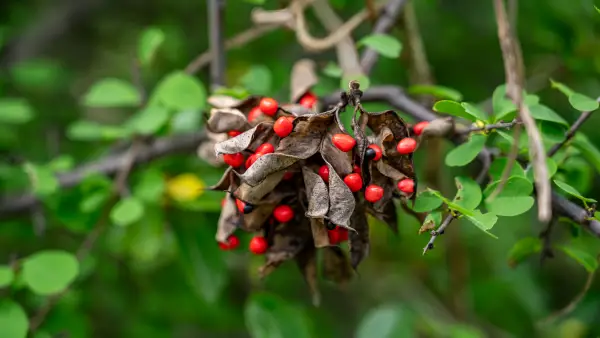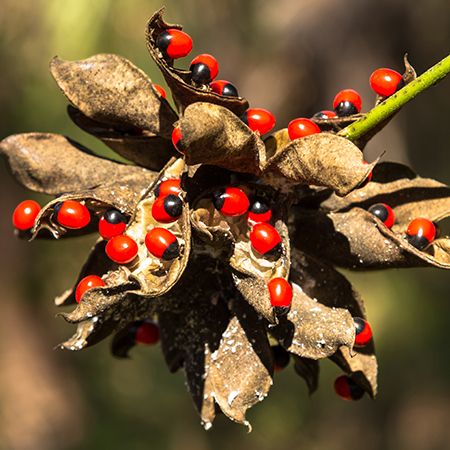
What is Abrus Precatorius?
Abrus precatorius, commonly known as the rosary pea or jequirity, is a highly toxic plant native to tropical regions. It produces bright red seeds with a black spot, often used in jewelry. The seeds contain abrin, a potent toxin that can be fatal if ingested, but the plant has been traditionally used in small amounts for medicinal purposes in some cultures.
Medicinal Properties
In a medicinal context, Abrusprecatorius, despite its toxic properties, has been traditionally used in various healing systems like Ayurveda and folk medicine. Its seeds, roots, and leaves have been employed in small, controlled quantities for their therapeutic effects. Some medicinal uses include treating joint pain, respiratory ailments, and skin conditions, as well as being used as an aphrodisiac. However, due to the presence of the highly toxic compound abrin in the seeds, it is critical that any medicinal use of Abrusprecatorius is done under strict guidance, as improper use can lead to severe poisoning or death.
Types
Abrus Precatorius primarily refers to a single species, but there are some notable varieties or forms distinguished by the color of their seeds:
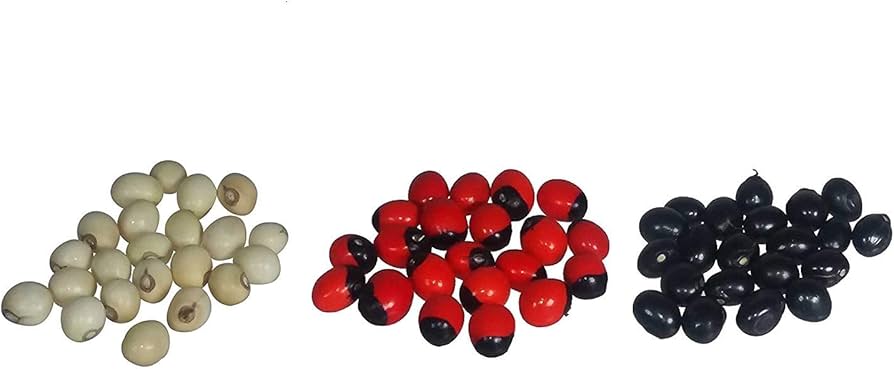
- Red and Black Seeds: The most common variety, often used in jewelry. These seeds have a bright red body with a black spot, commonly known as rosary peas.
- White Seeds: A rarer form where the seeds are white with a black spot.
- Yellow Seeds: Another less common variety with yellow-colored seeds and a black spot.
Though the plant remains the same across these varieties, the toxicity level, primarily due to the presence of abrin, remains consistent. The different seed colors are mainly of ornamental significance rather than medicinal distinction.
Forms
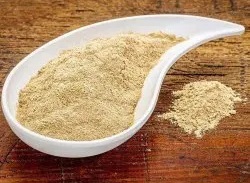
The forms of Abrus precatorius typically refer to different parts of the plant or its preparations used for medicinal or ornamental purposes. These include:
- Seed Form: The bright red or other colored seeds are often used in traditional medicine, but they are highly toxic due to abrin. Despite this, they are sometimes processed in specific ways for use in very small amounts.
- Root Form: Roots of the plant are also used in Ayurvedic and folk medicine to treat ailments such as fever, cough, and respiratory issues. The roots are less toxic compared to the seeds.
- Leaf Form: The leaves are used for external applications, like making pastes for treating joint pain, swelling, and skin conditions.
- Powdered Form: Some parts of the plant are dried and ground into a powder for medicinal uses. This form is typically applied externally or, in very controlled quantities, internally.
- Oil Extract: In some traditional practices, oil extracts from the seeds or leaves are used for skin treatments or hair care.
Health Benefits
Despite its toxicity, Abrusprecatorius has been used in traditional medicine for various health benefits, with its different parts (leaves, roots, seeds) applied in controlled doses. Some of the health benefits include:
Anti-inflammatory Property
In traditional medicine, Abrus precatorius is valued for its anti-inflammatory properties, particularly through the use of its leaves and roots. These parts are applied topically to reduce swelling and pain associated with conditions like arthritis and gout. The plant’s anti-inflammatory effects are attributed to its ability to inhibit pro-inflammatory chemicals in the body. However, due to the high toxicity of its seeds, careful preparation and guidance are crucial when using any part of this plant for medicinal purposes.
Respiratory Health
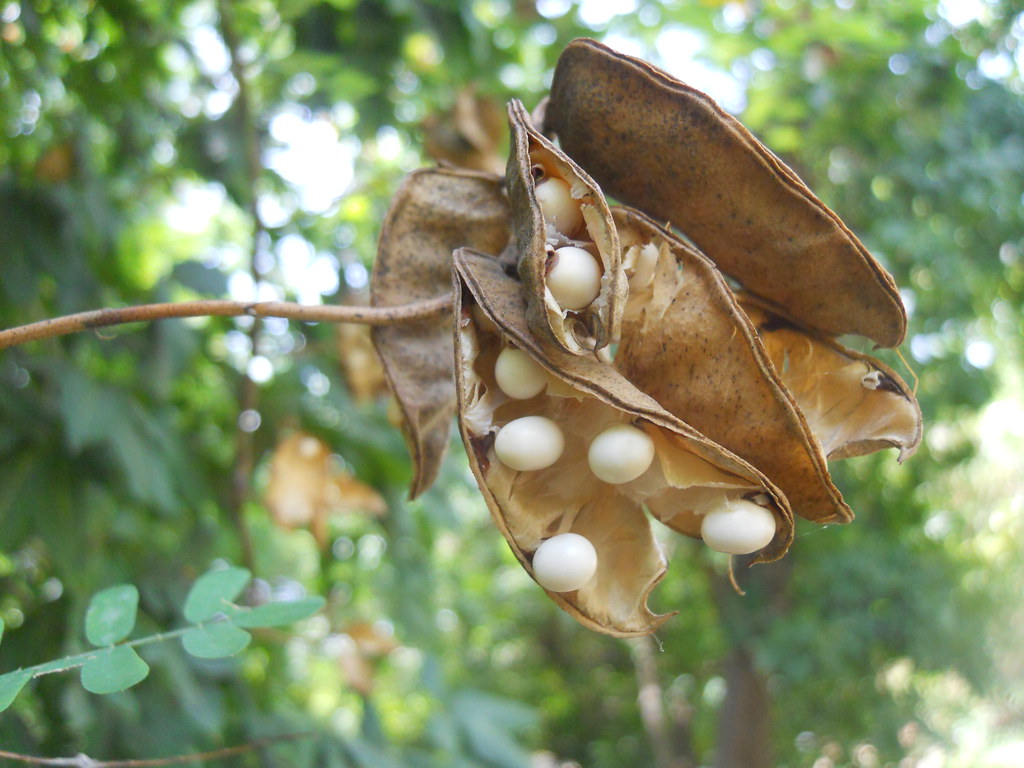
Abrusprecatorius has been used in traditional medicine to support respiratory health, particularly through the use of its roots. In some folk remedies, the roots are prepared as a decoction or tincture to treat coughs, colds, and asthma. The plant is believed to help soothe the respiratory tract, reduce coughing, and alleviate symptoms of respiratory conditions. However, due to the toxicity of the seeds and potential risks associated with improper use, it is essential to consult a healthcare provider before using Abrus Precatorius for respiratory issues.
Skin Care
Abrusprecatorius has been traditionally used for skin care, primarily through the application of its leaves or roots in the form of pastes or poultices. These topical preparations are believed to help with various skin conditions, including wounds, sores, and inflammation. The anti-inflammatory and antimicrobial properties of the plant can aid in reducing redness, swelling, and promoting healing of the skin. Despite its potential benefits, the plant’s seeds are highly toxic, so it is crucial to use Abrusprecatorius under the guidance of a knowledgeable practitioner to avoid adverse effects.
Hair Health
In traditional medicine, Abrusprecatorius has been used to promote hair health, typically through the use of oil or paste made from its seeds or leaves. These preparations are believed to nourish the scalp, strengthen hair, and potentially stimulate hair growth. The plant’s anti-inflammatory and antimicrobial properties may also help address scalp issues such as dandruff and irritation. However, due to the toxicity of the seeds, any use of Abrus Precatorius for hair care should be approached with caution and ideally under the supervision of a healthcare provider to avoid potential harm.
Aphrodisiac
In traditional medicine, Abrus Precatorius is sometimes used as an aphrodisiac, which means it is believed to boost sexual desire and performance. The plant’s seeds or roots are used to improve vitality and overall health. However, the seeds are very toxic and can be dangerous, so it’s important to use Abrus Precatorius carefully and only under the advice of a knowledgeable expert.
Side Effect

Abrus Precatorius can cause serious side effects, primarily due to the presence of abrin, a highly toxic compound. The main side effects include:
- Severe Poisoning: Ingesting even a small amount of the seeds can lead to severe poisoning, with symptoms such as nausea, vomiting, diarrhea, abdominal pain, and potentially organ failure.
- Toxicity Symptoms: Symptoms of toxicity may include dizziness, headache, fever, and difficulty breathing. In severe cases, it can cause multi-organ damage and death.
- Allergic Reactions: Some people may experience allergic reactions, including skin rash, itching, or swelling.
- Long-term Effects: Chronic exposure or misuse can lead to more severe health issues, such as liver or kidney damage.
Precaution
When using Abrus Precatorius, it’s very important to be careful. Always get advice from a healthcare expert before using it, especially since the seeds are very toxic. Make sure the plant is prepared correctly and watch for any bad reactions. Keep it away from children and have a plan ready in case of an emergency.



